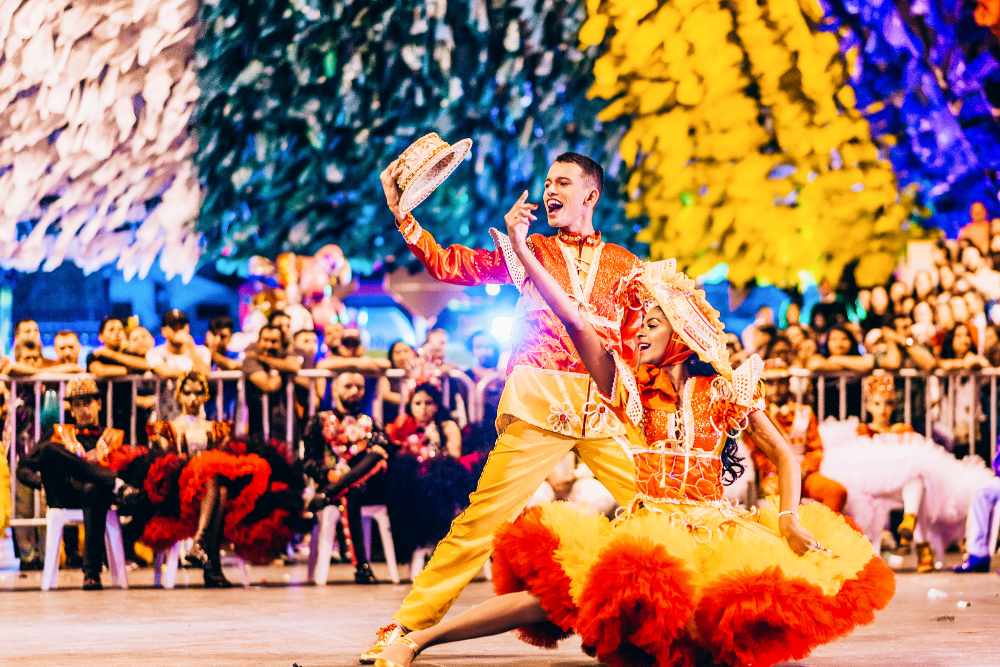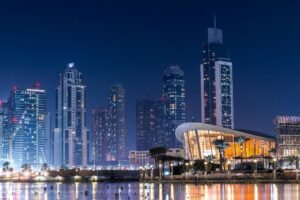Malaysia is a vibrant country known for its diverse cultural heritage, and one of the best ways to immerse yourself in this cultural melting pot is by experiencing its festivals. With a unique blend of Malay, Chinese, Indian, and indigenous influences, the festivals in Malaysia showcase the country’s rich traditions, colorful celebrations, and culinary delights. Whether you’re a local or a tourist, these festivals offer a chance to witness the country’s culture at its most vibrant and joyous.
In this blog, we’ll explore some of the must-experience festivals in Malaysia that every traveler should attend at least once in their lifetime.
1. Hari Raya Aidilfitri (Eid al-Fitr)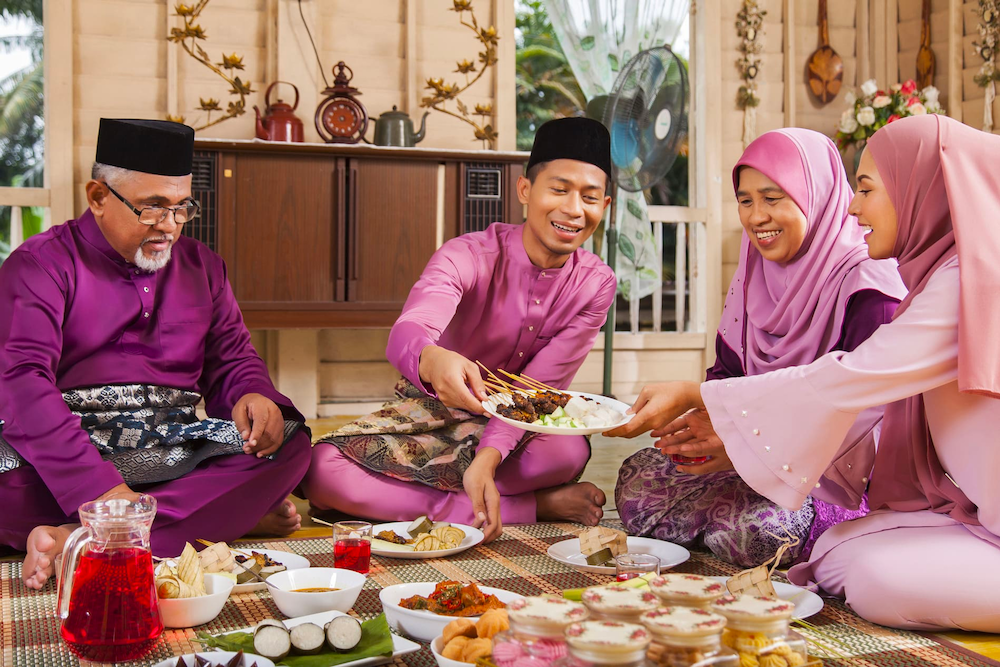
When: May or June (dates vary based on the Islamic calendar)
Where: Nationwide
Hari Raya Aidilfitri, also known as Eid al-Fitr, is one of the most important religious holidays in Malaysia for the Muslim community. It marks the end of Ramadan, the month of fasting, and is a celebration of togetherness, gratitude, and renewal.
What to Expect:
- Open Houses: One of the highlights of Hari Raya is the tradition of open houses, where families invite friends and neighbors to their homes to share food, laughter, and celebrate together. Expect to enjoy a spread of delicious dishes like rendang, ketupat, lemang, and serunding.
- Festive Decorations: Homes, malls, and streets are adorned with intricate decorations, lights, and traditional pelita (oil lamps).
- Traditional Clothing: Many people wear beautiful traditional outfits, such as the baju kurung for women and baju melayu for men. These clothes come in vibrant colors and often feature intricate embroidery.
- Festive Atmosphere: The celebrations are marked by prayers, family reunions, and visits to the graves of loved ones.
Why You Should Experience It:
Hari Raya is a time of unity, joy, and feasting, bringing together Malaysians of all ethnicities. It’s a time when you can experience the country’s hospitality and taste its rich culinary traditions.
2. Chinese New Year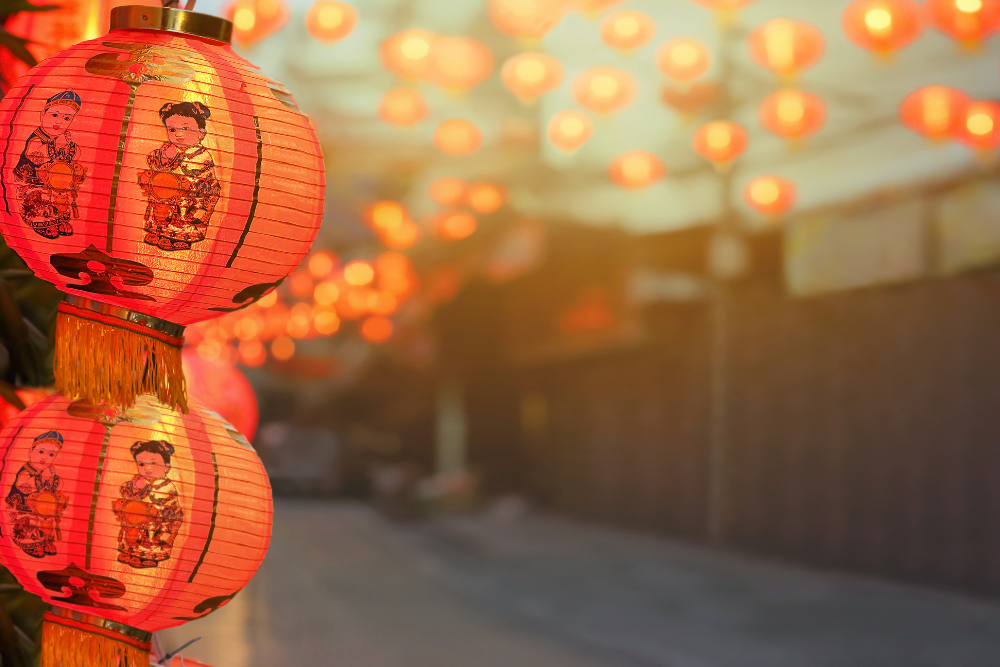
When: January or February (dates vary based on the lunar calendar)
Where: Nationwide, especially in Kuala Lumpur, Penang, Melaka, and Ipoh
Chinese New Year is one of the biggest and most widely celebrated festivals in Malaysia, with Chinese communities across the country marking the beginning of the lunar new year. This festive season is rich in customs, traditions, and plenty of celebrations.
What to Expect:
- Lion and Dragon Dances: Colorful lion and dragon dances are performed in many places, especially in Chinatown areas, to usher in good luck and fortune.
- Red Envelopes (Ang Pao): A significant part of the celebration involves giving and receiving ang pao, or red envelopes filled with money, symbolizing prosperity and good fortune.
- Fireworks and Firecrackers: The streets are illuminated with dazzling fireworks displays and the loud pop of firecrackers, creating an electric atmosphere.
- Delicious Food: Traditional foods like dumplings, yusheng (raw fish salad), nian gao (glutinous rice cake), and pineapple tarts are enjoyed with family and friends.
- Family Reunions: Chinese New Year is a time for families to come together, and you’ll see the importance of family bonds during this celebration.
Why You Should Experience It:
Chinese New Year is a sensory feast, with its vibrant colors, sounds, and delicious foods. The festivities, from the bustling markets to the lion dances, create an atmosphere of happiness and celebration, making it a must-experience festival in Malaysia.
3. Deepavali (Diwali)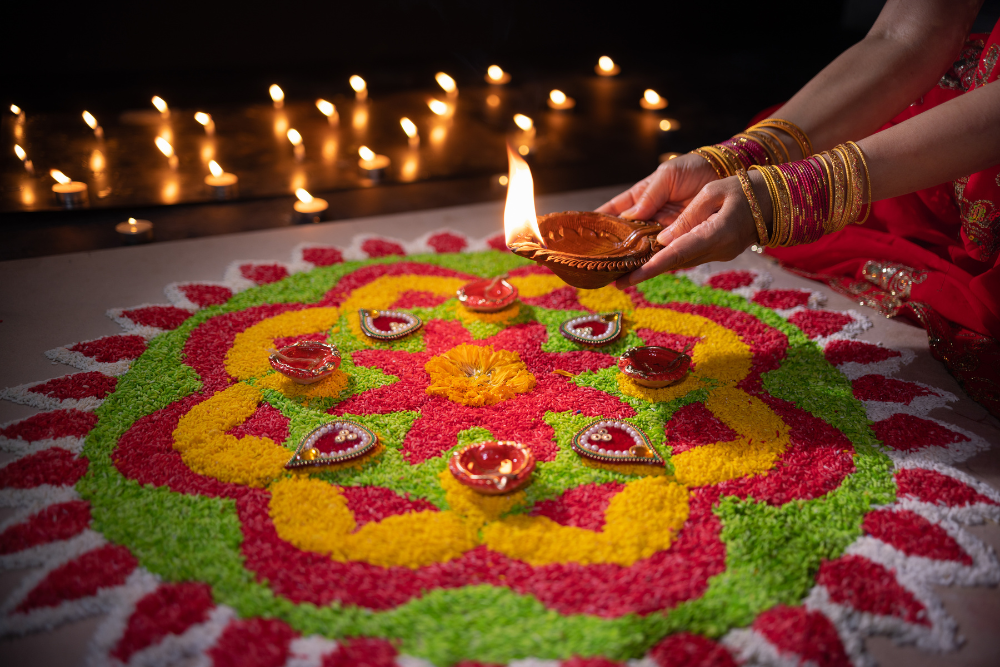
When: October or November (dates vary based on the Hindu lunar calendar)
Where: Nationwide, especially in Kuala Lumpur, Penang, Ipoh, and Melaka
Deepavali, also known as Diwali, is one of the most significant festivals for the Indian Hindu community in Malaysia. It’s known as the Festival of Lights, symbolizing the victory of light over darkness and good over evil.
What to Expect:
- Light Displays: Streets, homes, and temples are beautifully lit up with oil lamps called diyas and colorful lights. The sight of these lights illuminating the night is truly magical.
- Puja and Prayers: Hindus celebrate Deepavali by performing prayers to their deities, particularly Lakshmi, the goddess of wealth and prosperity.
- Traditional Clothing: People wear their finest clothes, usually in vibrant colors like gold, red, and yellow. Many women wear sarees, while men opt for kurta or dhoti.
- Sweets and Treats: Expect to be treated to a wide variety of sweets like laddu, murukku, kaju katli, and jalebi. These treats are often shared with friends, family, and neighbors.
- Fireworks: Fireworks light up the sky, adding to the sense of joy and festivity.
Why You Should Experience It:
Deepavali offers a unique glimpse into the colorful and spiritual side of Malaysian Indian culture. The stunning light displays, festive atmosphere, and mouthwatering food are just some of the many reasons why this festival should be experienced at least once.
4. Thaipusam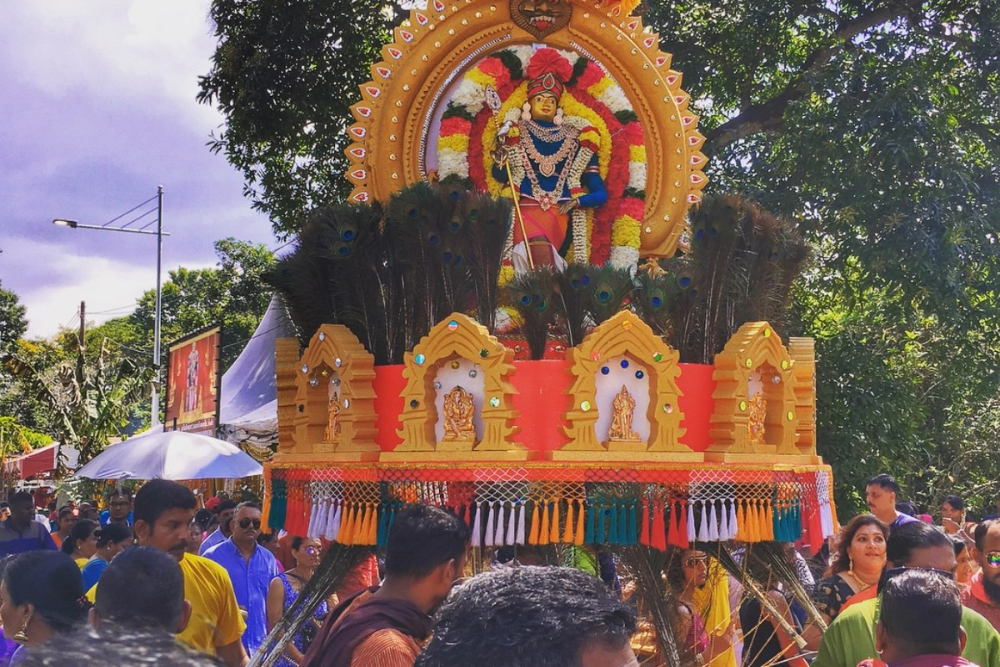
When: January or February (dates vary)
Where: Batu Caves, Ipoh, and other temples across Malaysia
Thaipusam is a significant Hindu festival, particularly for the Tamil community, and is celebrated in honor of Lord Murugan. The festival is best known for the penance performed by devotees, including the dramatic act of carrying kavadi (a physical burden) as a form of devotion and gratitude.
What to Expect:
- Kavadi Procession: Devotees, some of whom carry large, elaborate kavadis, walk barefoot to temples, with the most famous procession taking place at Batu Caves in Kuala Lumpur. The procession is a mesmerizing sight, as devotees pierce their skin, tongues, and cheeks with hooks, reflecting their devotion.
- Prayers and Rituals: The day begins with prayers and rituals at the temples, including offerings and ceremonies to honor Lord Murugan.
- Vibrant Atmosphere: The streets come alive with the chanting of hymns, drums, and vibrant colors as thousands of people participate in the procession.
Why You Should Experience It:
Thaipusam is a unique and spiritual festival that showcases the devotion, faith, and strength of the participants. The stunning visual spectacle of the kavadi procession, coupled with the powerful sense of devotion, makes it an unforgettable experience.
5. Hari Gawai
When: June 1st
Where: Sarawak, Borneo
Hari Gawai is a traditional harvest festival celebrated by the Dayak people of Sarawak, Borneo. This vibrant festival marks the end of the rice harvest season and is a time to give thanks to the spirits for the bountiful harvest.
What to Expect:
- Traditional Rituals: The celebration starts with a religious ceremony, which includes offerings to spirits, prayers, and dancing.
- Food and Drink: Expect to indulge in delicious Dayak specialties, including kolo mee, sarap, and tuak (rice wine).
- Cultural Performances: There are traditional gongs, music, and dances performed to celebrate the harvest and honor the ancestors.
- Festive Attire: People dress in traditional Dayak costumes, often adorned with intricate beadwork and headgear.
Why You Should Experience It:
Hari Gawai is a beautiful celebration of indigenous culture and tradition. It offers an insight into the way of life of the Dayak people, and the lively celebrations make it a must-see for anyone visiting Sarawak.
6. Wesak Day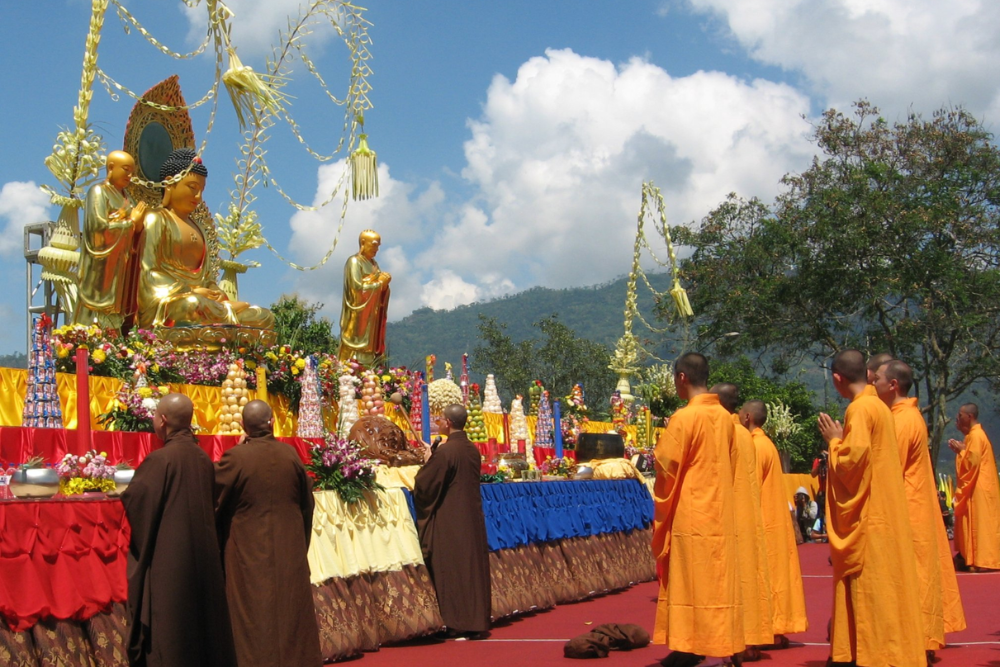
When: April or May (dates vary based on the Buddhist lunar calendar)
Where: Nationwide, especially in Penang, Kuala Lumpur, and Malacca
Wesak Day is one of the most important Buddhist festivals, commemorating the birth, enlightenment, and death of Siddhartha Gautama, the Buddha. It is a day of prayer, reflection, and charity for the Buddhist community.
What to Expect:
- Temple Ceremonies: Buddhists gather in temples for prayers, meditation, and rituals. You’ll often see monks giving blessings to devotees and the lighting of incense as an offering.
- Buddha Processions: In some parts of Malaysia, there are colorful parades featuring statues of the Buddha, accompanied by music and chanting.
- Charity and Giving: Many people take this opportunity to make charitable donations and perform acts of kindness.
Why You Should Experience It:
Wesak Day offers a peaceful and spiritual experience, where you can witness the Buddhist community’s deep devotion and sense of inner peace. The tranquil atmosphere and the beautiful temple ceremonies make it a unique festival to experience.
Conclusion
Malaysia’s festivals are a celebration of the country’s diversity and cultural richness. From the joyful festivities of Hari Raya Aidilfitri to the vibrant lights of Deepavali and the spiritual devotion of Thaipusam, each festival offers something unique and special. Attending these festivals will not only give you an insight into Malaysia’s traditions but also allow you to connect with its people and their stories.
So, whether you’re in search of food, culture, spirituality, or just pure fun, these festivals are experiences you should definitely add to your travel bucket list!



